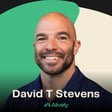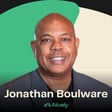
The Surprising Truth About Drinking in Moderation with Laura Elorza - E71
You want to cut back on drinking, but everywhere you turn - dinners, celebrations, even quiet nights at home - society pushes alcohol as the shortcut to fun and relaxation. Yet, you know those extra glasses leave you foggy, drained, and maybe even stuck in a shame spiral that saps your energy for days.
Breaking this cycle isn’t just about willpower or strict rules. The real challenge is rewiring your habits and making conscious choices that actually fit your goals and lifestyle. That’s tough when social pressure, outdated routines, and internal critics get in the way.
In this episode, we explore how small but powerful shifts in awareness, boundaries, and daily routines can help you regain control - whether your aim is moderation or cutting out alcohol entirely. Instead of vague promises and overnight solutions, we get real strategies from someone who’s helped countless others navigate the same process.
Laura Elorza is a clinical psychologist known for her work in conscious habit formation and moderation, particularly in the realm of alcohol use and wellness. She collaborates with Unconscious Moderation, an app focused on combining hypnotherapy, movement, and journaling to foster sustainable behavioral change. Laura's practice centers on helping individuals navigate social pressures, internal criticism, and mindfulness, offering tools for personal growth rooted in practical self-inquiry and daily routines. Her clients include people seeking healthier relationships with alcohol and those interested in holistic health strategies designed for everyday life.
“I've seen that I've started to drink a little bit more because I associate being more relaxed and more confident with drinking.” - Laura Elorza
In this episode you will learn:
- Why effort is not the same as suffering, and how small steps drive healthy change.
- How social connection and self-reflection play a key role in health and happiness.
- What the “sober curious” movement is, and how thinking about alcohol has evolved.
- Tools and habits for mindful decision-making around drinking and routines.
- How movement, journaling, and guided meditation support better choices and wellbeing.
- Why short-term routine reassessment can keep habits aligned with your goals and values.
Resources:
- Connect with Laura: https://www.instagram.com/um_app
- Find out more about the UM App: https://um.app
- Follow the UM App YouTube channel for more inspiring content: https://www.youtube.com/@UM_App_Official
- Listen to the UM Podcast, ‘Mind Over Glass’: https://um.app/podcast-mind-over-glass/
This podcast was produced by the team at Zapods Podcast Agency:
Find the products, practices, and routines discussed on the Alively website:
















